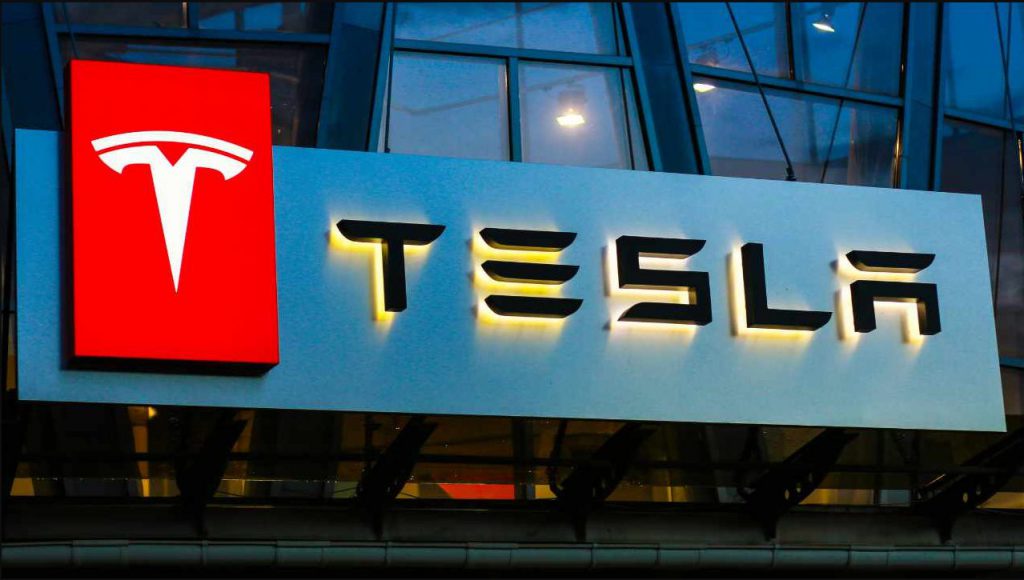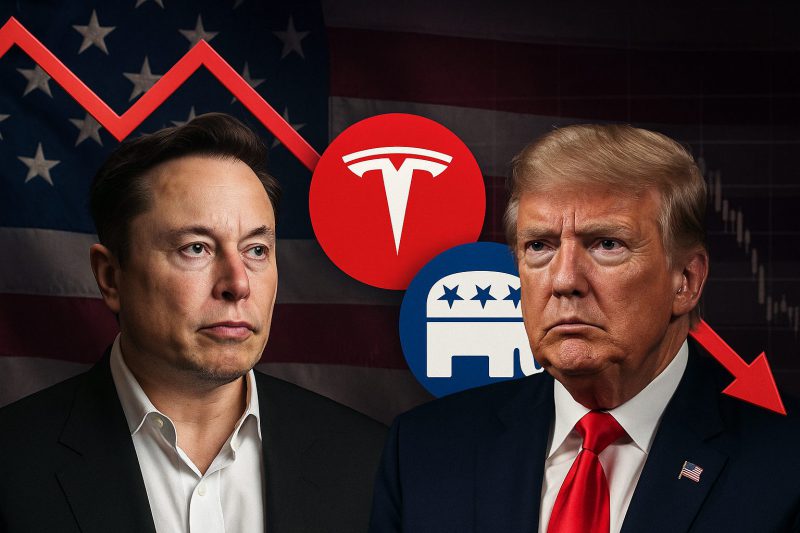Tesla stock risks are mounting right now as the electric vehicle giant faces an unprecedented threat to its profitability. The potential EV tax credit removal under Trump’s administration could slash Tesla’s earnings by a staggering 52%, according to JPMorgan analyst estimates. At the time of writing, the Elon Musk Trump feud has already sent shares tumbling 8% in June alone, and this highlights Tesla stock valuation concerns across the electric vehicle market. With Tesla trading at 166 times forward earnings versus the S&P 500’s 22 times, investors are questioning whether the company’s premium remains justified anymore.
Also Read: Elon Musk’s xAI Taps Morgan Stanley for $5B Debt Amid Trump Feud
Tesla Stock Volatility Grows Amid EV Tax Credit Removal And Musk-Trump Feud


EV Subsidies Drive Half Of Tesla’s Profits
The Tesla stock susceptibility is likely to be more exposed because recent research shows that the company is in a hazardous situation of relying on government assistance. JPMorgan analyst Ryan Brinkman has found out that EV subsidies are nearly 52 percent of current profits at Tesla and the disappearance of the EV tax credit could prove disastrous to the bottom line of the auto giant.
This will leave Tesla in an absolutely weak position because the legislation proposed by Trump would eliminate over 50 percent of profits of the company. Tesla bulls had hoped that close relations between the Elon Musk and Trump camps would save these subsidies, but the feud has already worsened ties, and the Tesla stock valuation is showing its nervousness in the current state of the electric vehicle marketplace.
Massive Valuation Disconnect Emerges
The Tesla stock risks extend beyond just subsidy removal, as a massive disconnect has emerged between Tesla’s market valuation and its deteriorating fundamentals. While Tesla stock has climbed 12% since October 2022, consensus EPS estimates for 2025, 2026, and 2027 have plunged by 77%, 70%, and 71% respectively.
This creates what analysts call a dangerous gap between market expectations and reality. Tesla’s forward P/E ratio of 166 times compared to the S&P 500’s 22 times becomes increasingly difficult to justify when earnings projections are being slashed so dramatically.
Brinkman described the post-election Tesla rally as:
“some combination of ‘animal spirits’, ‘speculative fervor’, and ‘irrational exuberance’ allowing for greater investor entertaining of very long-dated bull theses which in our estimation are unlikely to hold up medium-term against the weight of higher-for-longer interest rates and any eventual risk-off shift in the market eliciting sector and thematic rotation.”
The analyst noted that despite expectations about Musk’s Trump connection, there has been no uplift to medium-term outlooks, suggesting the EV tax credit removal threat remains very real for the electric vehicle market going forward.
Also Read: Tesla Chair Cashes Out $32M in Tesla Stock, Extending 2024–25 Selloff
Political Fallout Threatens Future Prospects
The Tesla stock risks have intensified as the very public spat between Elon Musk and President Trump sent shares on a wild ride. Tesla shares are off 8% in June versus a 2% gain for the S&P 500, and this reflects investor fears that Trump will target Musk’s businesses moving forward.
The Elon Musk Trump feud undermines the bull thesis that many investors had counted on following November’s election. The idea that Musk being “first buddy” would lead to millions of driverless cars and extended EV credits has evaporated, leaving Tesla stock valuation questions unanswered at this point.
With Tesla entering at least two years of heavy investment for robotaxi operations while facing potential EV tax credit removal, the company faces a perfect storm. The electric vehicle market leader must now fund ambitious projects while potentially losing its most significant profit driver, and this creates additional Tesla stock risks that investors need to consider carefully.





